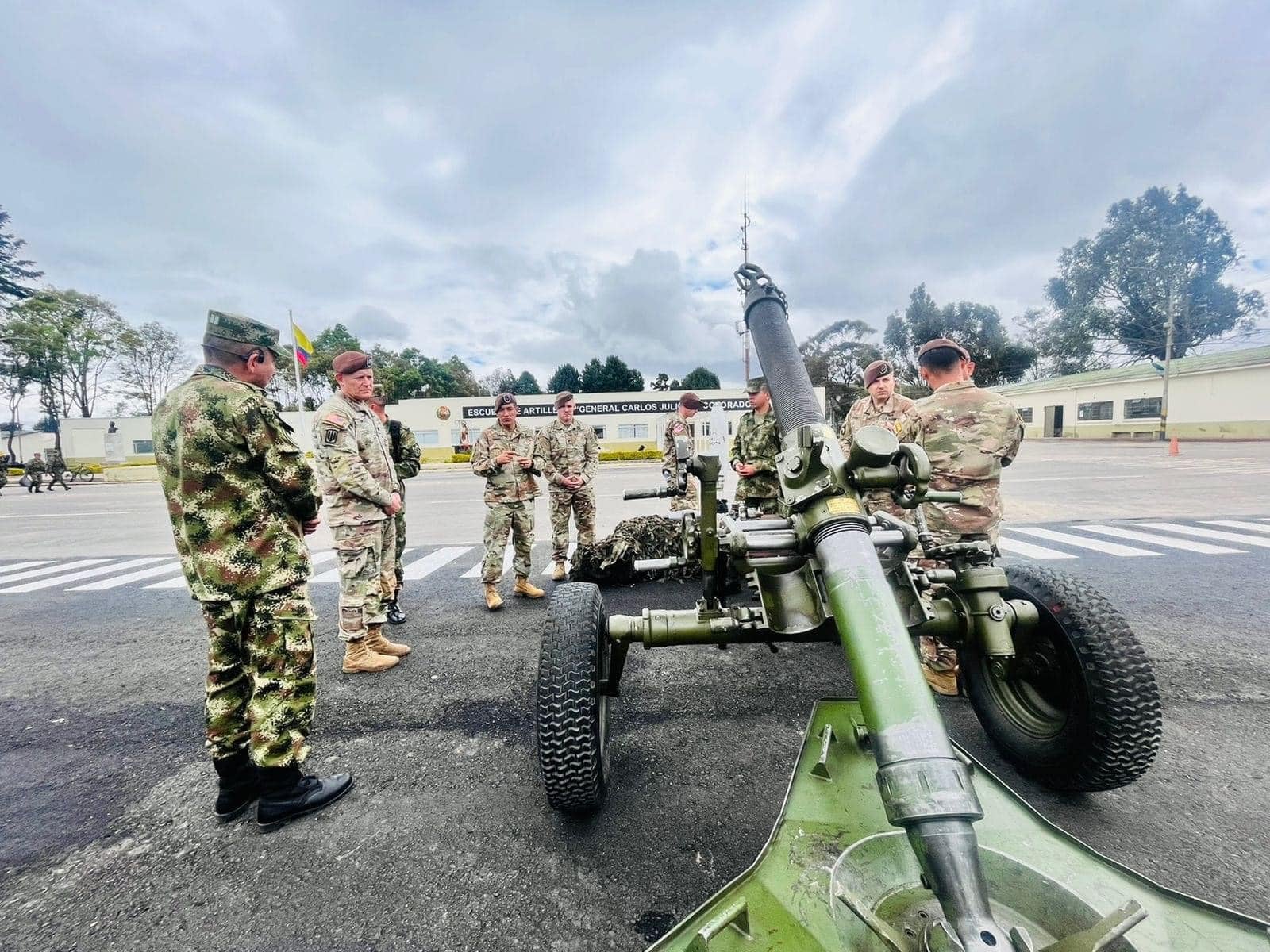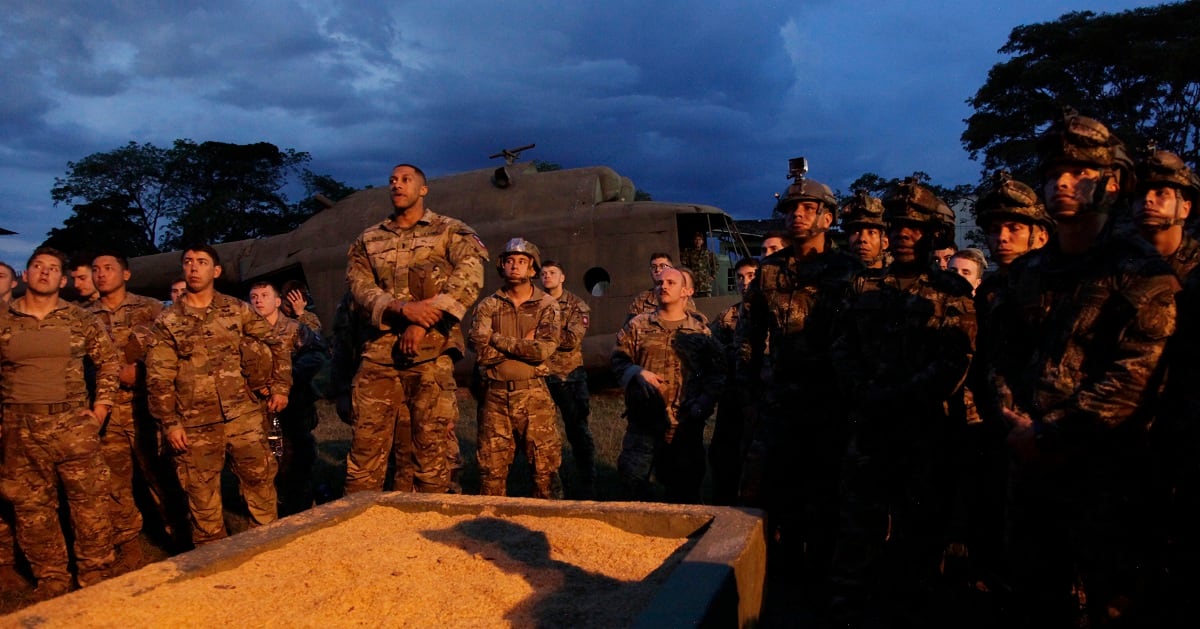Soldiers dispatched to Latin America for the Army’s new trademark advising missions were warned last fall to behave after word trickled out that there had been an increase in STDs among married and single advisors, use of online dating apps and drinking against regulations.
Those concerns came to a head in January, when a military spouse anonymously texted a senior enlisted leader in 1st Security Force Assistance Brigade and directly accused an advising team in Tolemaida, Colombia, of debauchery, including soldiers partying and sleeping around. That triggered a formal investigation, according to internal records obtained by Army Times.
But two emails from last fall suggest problems went beyond that one team of nine troops, who are currently facing punishment.
“There have been a up tic in STDs within the BDE [brigade] since we started deploying to Central and South America in both married and unmarried Soldiers,” Command Sgt. Maj. Christopher J. Williams wrote Sept. 24 in an email to 1st SFAB team leaders. “This is extremely concerning and wanted all advisors to be aware that the health stats are going up and it is in mostly advisors that have been deployed.”
A month later, Williams sent another email chiding the teams once again. He had been hearing of undisciplined acts “across the formation,” including among soldiers in Colombia and Honduras.
He noted in the email that some of this is rumor, “but I am hearing more and more as the months and weeks go by.”
“We have all now been in country for about two months and I am hearing that we have advisors that have broken the GO#1 no drinking policy without approval,” Williams wrote Oct. 24. “[W]e have advisors that have violated curfew policy, we have married advisors that have TINDER accounts, advisors that have been hitting on hotel staff and we have teams that are not following all rules and guidelines.
“We are here on mission, not a vacation or trying to find a significant other,” Williams added. “I am asking if you/or have team members that are doing unethical, unprofessional or intentional wrong behavior stop immediately. I trust you, but I also don’t want to get burnt because I do trust you. I expect leaders to uphold the discipline.”

The emails provide a glimpse into the internal headaches SFABs face as they dispatch small teams, typically led by a captain, to foreign countries where there is very little U.S. military presence and oversight.
SFABs are staffed by experienced soldiers, not the young grunts well-known for misbehaving overseas, and so they’re expected to act more professionally when far from the command flagpole. In general, that appears to be the case, as advisors have visited tropical islands like the Maldives and cities with bustling nightlife like Bogota with no other public reports of misconduct.
On any given day in 2021, there were roughly 800 advisors on missions to 41 countries. That’s expected to grow to 1,000 soldiers deployed at any one time in the coming years, as the SFAB enterprise tries to woo foreign countries with promises of advanced U.S. military training.
But even isolated incidents of misconduct can have severe consequences in sensitive foreign countries where the SFABs may be still trying to prove the U.S. is a better partner than, say, Russia or China.
The investigation into one advising team from 1st SFAB began after Williams received anonymous text messages complaining that the soldiers were staying out all night, drinking alcohol against regulations, and soliciting prostitutes and masseuses for sexual gratification.
The anonymous texts were received Jan. 17, Williams told investigators in a sworn statement, and appeared to be from one of the soldier’s spouses. The command initiated an investigation that same day.
The probe ended in May. It found that nine soldiers had been leaving their assigned installation without proper approval and violating no-drinking orders, but it did not find evidence that they had visited sex workers.

Security Force Assistance Command spokesperson Lt. Col. Melody Faulkenberry told Army Times that these were isolated incidents.
“The SFABs have served honorably and represent the nation well,” Faulkenberry said in response to a series of questions. “When allegations of misconduct occur, it is investigated and founded claims go through due process whereby service members are held accountable.”
Faulkenberry also said context was missing from the emails Army Times obtained, including one bizarre request Williams related to SFAB teams in the September email.
Williams said a Colombian in charge of a hotel where advisors were staying had asked him to ensure his troops did not use drugs at the establishment or on a nearby military base. It’s unclear what sparked that request.
“‘I am not judging your Soldiers, but could you make sure that if your Soldiers want to smoke marijuana or do hallucinogen drugs please ask them not to do them on Canton Norte or in the Hotel,’” the Colombian said, according to Williams’ email.
“That was extremely embarrassing that a COL [Colombian] would ask that I ensure we don’t do illegal drugs when illegal drugs are forbidden in the Army,” Williams wrote to his advisors. “We are supposed to be a high discipline and professional unit. Make no mistake, the [battalion] commander and I do not condone the use of illegal drugs at any time.”
Faulkenberry said that the hotel heads-up was preemptive and not based on any actual drug use.
“For those allegations which were substantiated, the unit is currently in the process of taking appropriate UCMJ and administrative actions,” Faulkenberry said. “We take all allegations of Soldier misconduct with the utmost seriousness and the overwhelming majority of Security Force Assistance Brigade advisors conducting worldwide missions represent the Army and the United States with honor and distinction.”
In the emails, Williams appears to make the same point. He wrote in both messages that he believed most soldiers were behaving. But he also warned that it doesn’t take much to cause a snafu for all advising teams.
“One awe shit will take away 100 ad-a-boys,” Williams warned in the October email to advisors.
Kyle Rempfer was an editor and reporter who has covered combat operations, criminal cases, foreign military assistance and training accidents. Before entering journalism, Kyle served in U.S. Air Force Special Tactics and deployed in 2014 to Paktika Province, Afghanistan, and Baghdad, Iraq.




